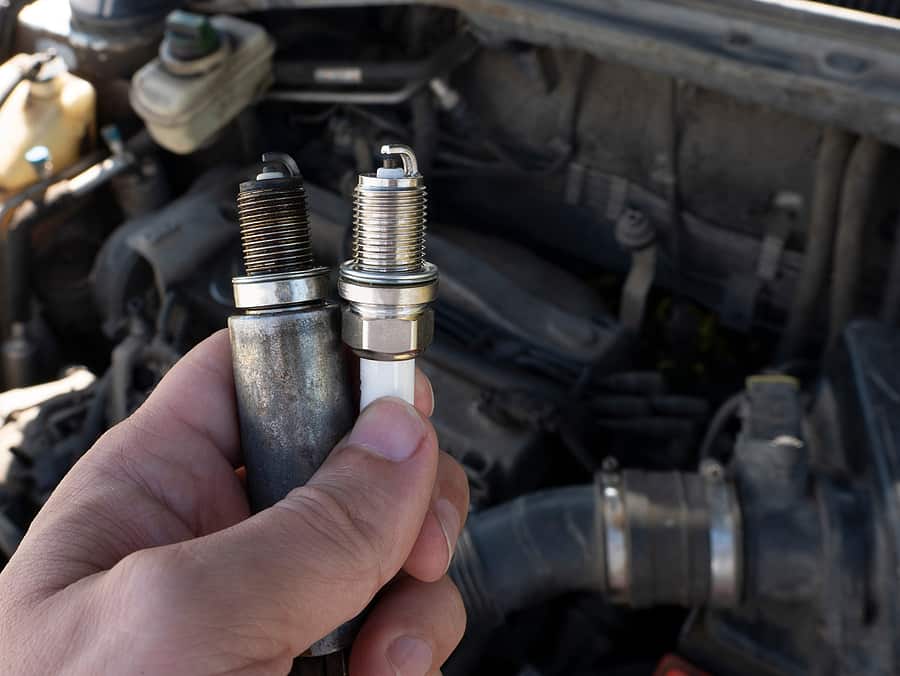
Spark plugs are an integral part of the engine. Each one sends a little high voltage spark between the terminals, which is used to ignite fuel in the engine. When spark plugs fail, this means that your engine will stop running efficiently.
Over time spark plugs can become dirty, picking up a residue from the burned fuel, coating the electrodes with carbon. Additionally, repeated sparking of the metal components can simply wear them down, increasing the distance the spark has to jump between electrodes, requiring additional charge from the battery which is not always available. In short, spark plugs will wear out.
So how can you tell that your spark plugs are not working normally? What are the main symptoms of this small, but vitally important part, starting to fail?
Misfiring
Because spark plugs are responsible for igniting the fuel in the combustion chambers of the pistons, this is one of the classic symptoms of faulty or inconsistently sparking plugs. Misfiring is when your engine judders in a jerky motion, due to the plugs failing to properly ignite the air fuel mixture. You’ll notice spluttering sounds, engine power drops – especially when going from stationary to moving – and the ride quality will diminish.
Spark plug failure is amongst the reasons why you could be experiencing misfiring, and none of the other culprits are good news either. Therefore if your car is suffering from this issue, get it checked out by a mechanic immediately, not only to resolve the underlying problem, but also to prevent further damage to the engine.
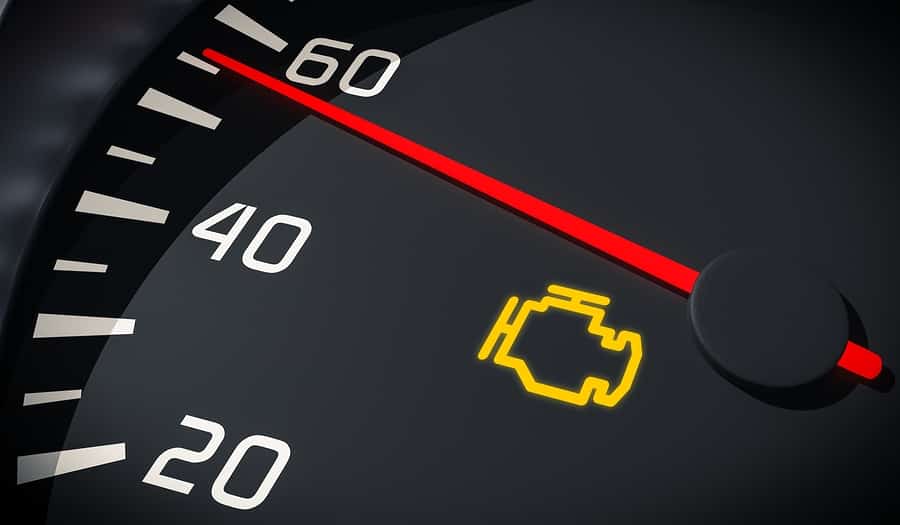
Check Engine Light
This light can blink into play on your dashboard for a number of reasons. One of which is failing spark plugs – and in some vehicles, this is one of the only or main indicators you’ll see. When the engine misfires, it is usually picked up by the ECU as a fault, causing the check engine light to ignite. Once the light has alerted you to a problem, using an OBD2 scanner will allow you to identify the cause – which could well be an issue with the spark plugs.
Fuel Economy
Are you taking more trips than usual to the filling station, but you’re not spending any more time than usual behind the wheel? Everyone should be tracking fuel economy – usually as part of your monthly budget.
Increased spend means lower efficiency. One of the reasons why efficiency could deteriorate is because of fouled or dirty spark plugs, causing misfires and engine issues that could see you spending up to 30% more on fuel. Replace the plugs and the problem should disappear.
Rough Idle
Normally a car will idle around 1,000 rpm as a baseline. No doubt you’re quite used to the sound of the engine purring gently as you wait at a junction or the lights. No doubt you’ll notice if the soft hum transforms into a rough, jumpy sound that causes the car to shake – emanating from a particular kind of misfiring cylinder that only happens under idle.
How does this happen? When the engine misfires, this can let through unburned fuel, which can often be incorrectly identified by the oxygen sensors, which then adjusts the fuel and air flow resulting in a lean mixture that causes misfires.
If you suspect this problem then it’s going to pay to get down the garage. The explosive nature of the fault can lead to more costly damage to the engine – which is not going to be so cheap to repair.
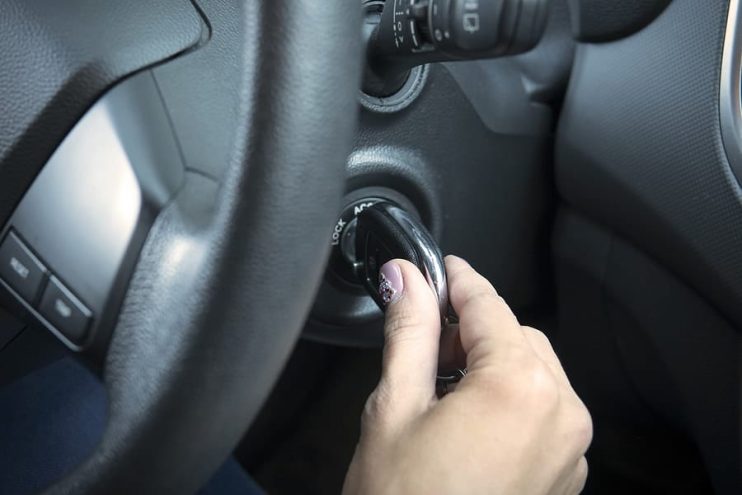
Hard Starting
Car won’t start in the morning? Most people will usually put this down to forgetting to refuel or the battery having a moment. However, bad spark plugs could also stop you from getting to where you want to go – stopping the starting process, or leaving you cranking the engine for a very long time, before it finally starts turning properly.
Getting your car started from a standing start, particularly when it has been allowed to fully cool down, is hard work for the engine. The control module adds a little extra fuel to get the engine going. No problem at all for a normal healthy spark plug, but this is where older, worn plugs will often struggle.
Faulty spark plugs will also cause premature battery drain when starting, as there’s no charge coming from the alternator to keep it topped up. Changing your plugs can help save your battery, as well as making sure you start properly.
Slow Acceleration
We’ve already mentioned the problems with the oxygen sensor under idle, well this issue doesn’t disappear when you put your foot down either. The lean mixture can make acceleration a real hard task for the car, and you’ll notice that it’s not getting out of the blocks like it used to. Instead you’ll find it slow and sluggish. The car will not respond normally, sometimes even giving the impression that it’s having to work hard to really pull itself along.
If you’re experiencing bad acceleration, then it’s likely that spark plug issues could be at fault. When you put your foot down, the spark plugs need to work faster, as the chambers fill more quickly – meaning that if there’s a problem with a plug, then it’s likely to become pronounced when you try to accelerate. Sort the problem out by having your plugs inspected, and changed if they’re found to be at fault.
Hesitation and Surging
Again, this is a problem associated with the acceleration. You’ll notice that your engine is not responding normally to pressure on the pedal. Again, this is due to the poor air fuel mixture mentioned previously, leading to the engine not being able to combust at the right power level. It can be especially dangerous when driving in close traffic, such as on a motorway or dual carriageway.
And Finally
No one wants a fault with their car, but at least if you have spark plug issues then these can be easily resolved by buying some replacements, and doing the necessary work to get them into the engine. It’s not the easiest job in the world, but with a little advice, replacing your spark plugs at home can save you a bit of money, when compared to paying out for the pros. And as with most mechanical problems – remember that early identification and resolution can stop knock on issues occurring in your car.

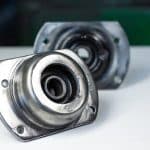


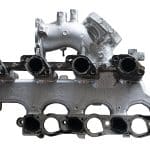
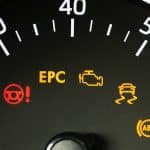
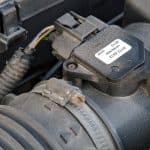
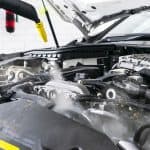


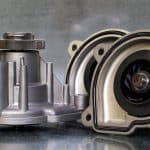


.png)